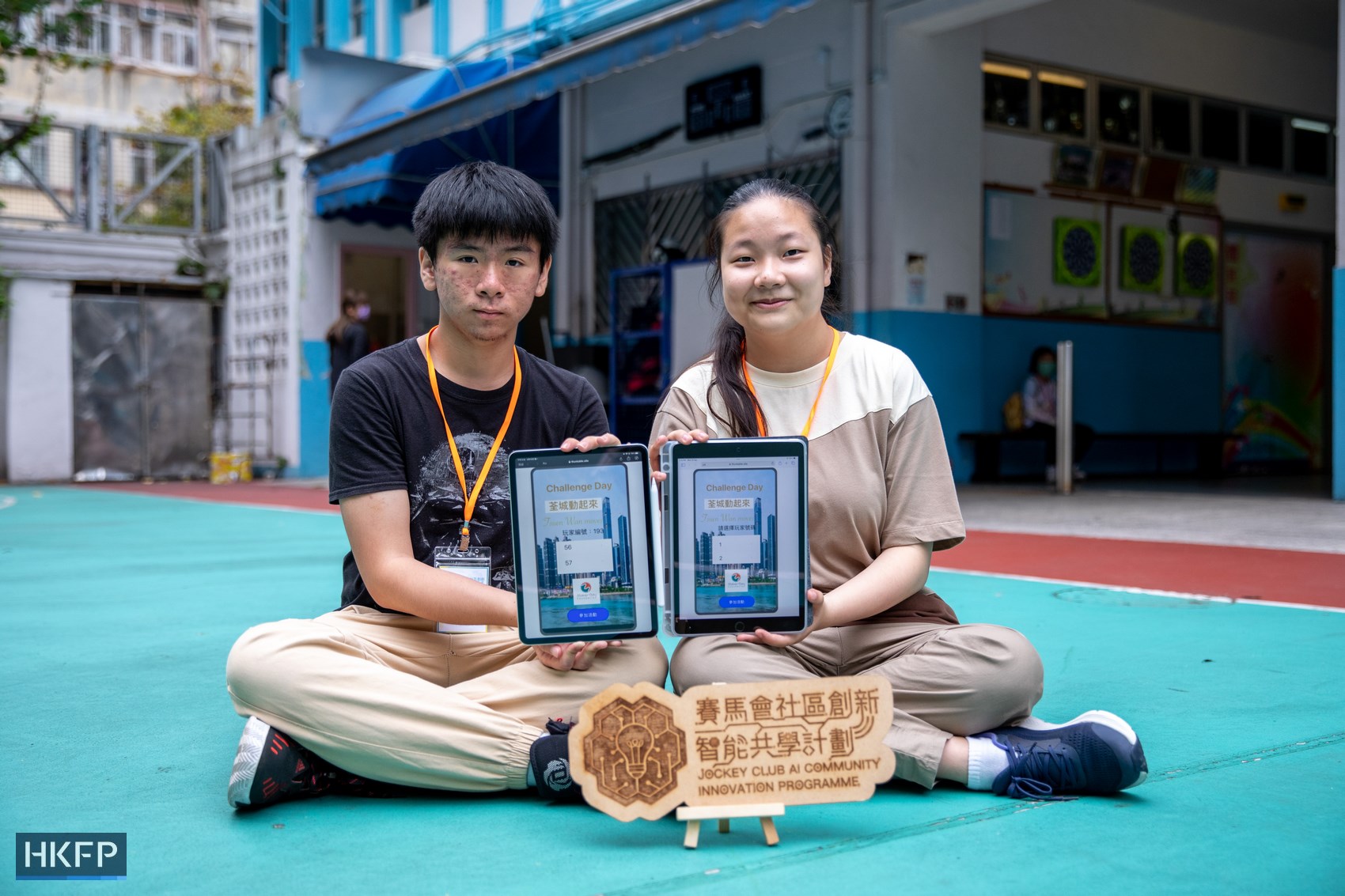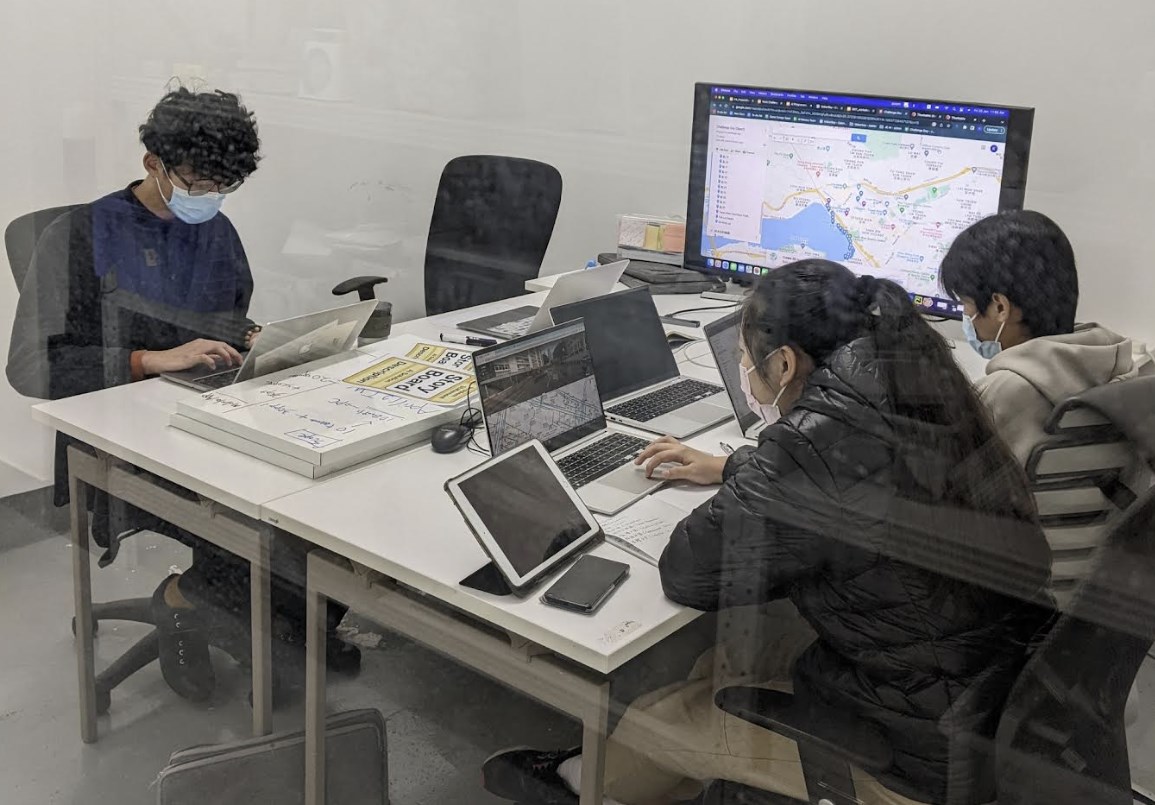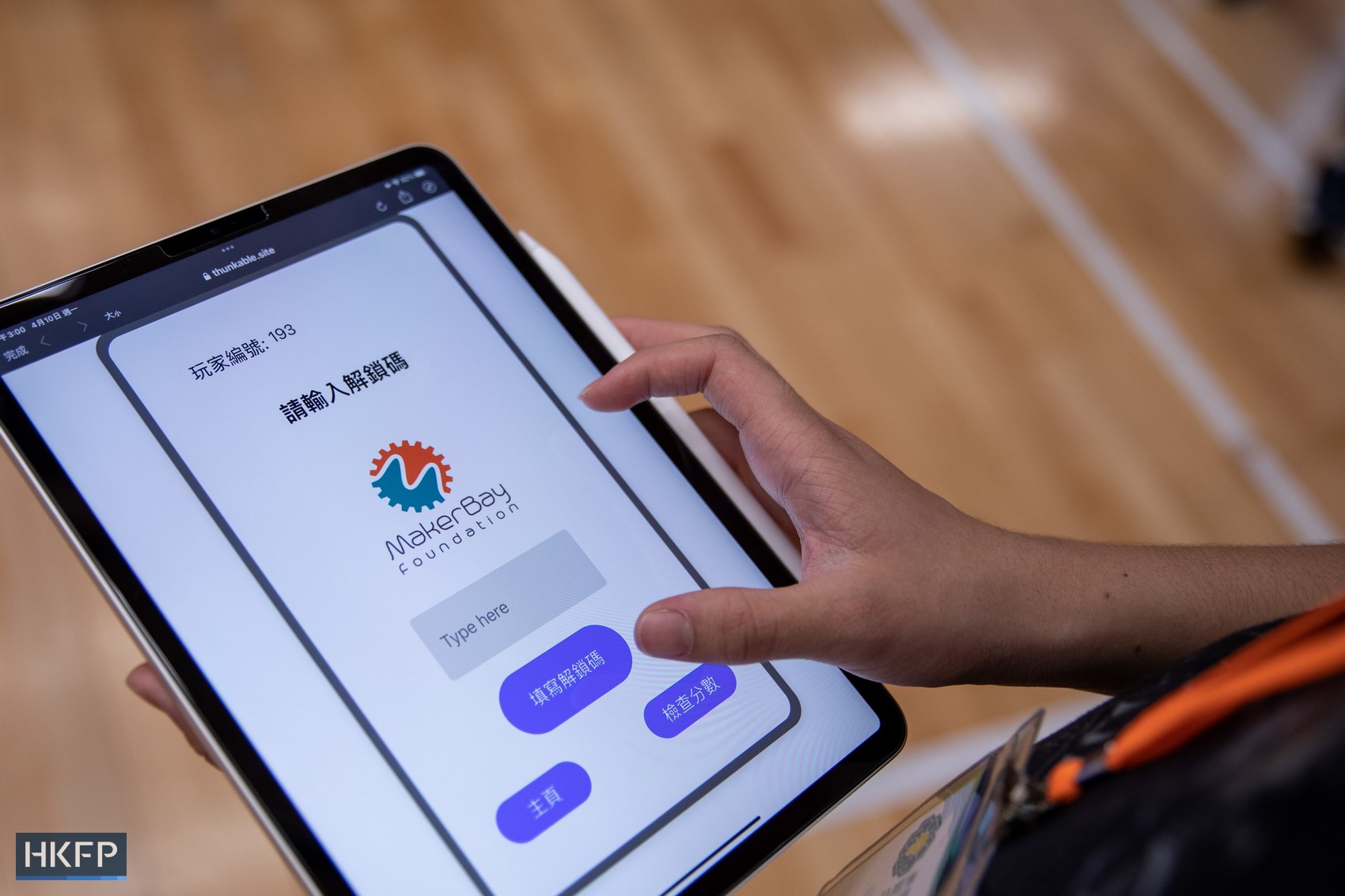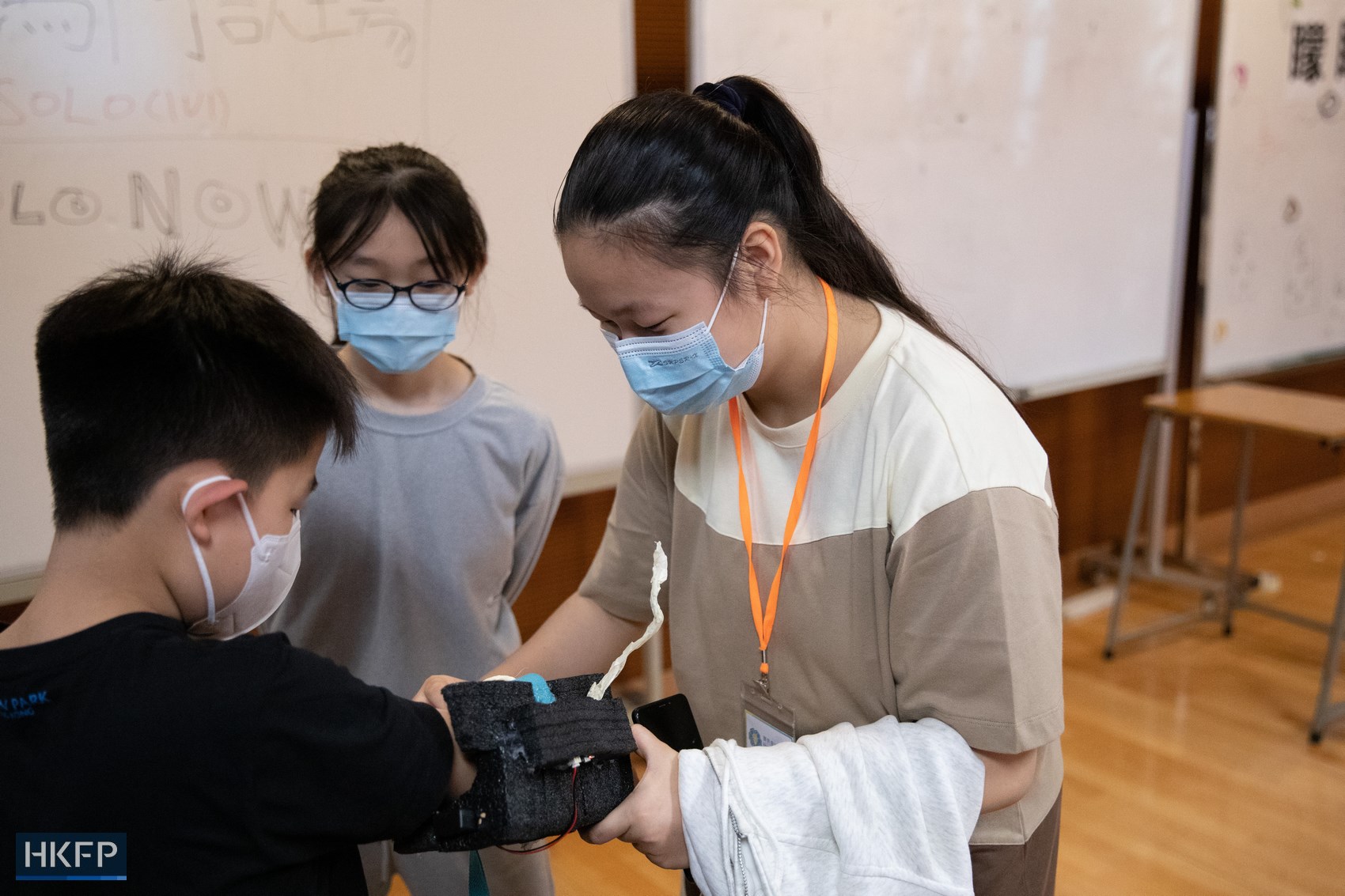[sponsored] Many parents can relate to the struggle of discouraging their children from playing video games or scrolling through their phones.
With technology such as the Internet of Things (IoT) and wearables making it harder to go truly offline, we may reach a point where we’re always connected within the next generation.

But as the offline world becomes further entangled with the digital one, modern technology can increasingly be utilised for positive purposes.
The power of using tech to benefit society is at the heart of the Jockey Club AI Community Innovation Programme, a hands-on project funded by The Hong Kong Jockey Club Charities Trust and organised by MakerBay Foundation, a non-profit maker space in Hong Kong.

The programme, which kicked off in April 2022 and runs until 2024, is leveraging youngsters’ interest in the internet and digital devices to foster AI literacy and education among underserved youth in Hong Kong.
“Through the programme, young people between the ages of 8 and 18 are provided with education and training opportunities to help equalise access to quality AI education in the community. These opportunities are especially important for youth studying in schools with little or no AI education provision,” explains Cyron Chan, Executive Director of MakerBay Foundation.
To date, the project has conducted over 100 community AI workshops, training over 1,000 people in the principles and applications of artificial intelligence.

“The programme provides a structured and adaptable curriculum with modular AI learning materials, designed specifically for community-based education,” says Chan. “Through immersive workshops facilitated by experienced professionals, students engage in hands-on learning experiences covering diverse themes like AI fundamentals, game design, mobile app development and robotics. This equips them with the skills and knowledge to address real-world challenges, such as promoting sustainability on campus or offering support to individuals with visual impairments.”
From digital consumers to digital creators
Chan emphasises that the Jockey Club AI Community Innovation Programme aims to cultivate AI literacy and foster problem-solving skills among young people in Hong Kong. In addition, the Challenge Day series, a seasonal competition centred around different themes, serves as a platform for participants to apply their newfound AI knowledge in practical ways that benefit the community.
“We held a Challenge Day earlier and asked participants to develop AI solutions to enhance accessibility for blind and partially sighted people,” Chan recalls. “To cultivate a user-centric mindset and create solutions that address the users’ needs, we invited the visually impaired to co-create and provide feedback to students for enhancing their solutions. It was an immersive experience for the participants to experience how visually impaired people navigate the mall using white canes, tactile guide paths and braille.”

He continues: “By integrating these skills into our AI education programme, we can help students to develop a well-rounded skill set, to prepare them for future studies and careers by transforming from digital consumers to digital creators. More importantly, they’re learning the importance of the human-centric approach in developing artificial intelligence applications.”
Developing an app to ‘Get Moving in Tsuen Wan’
Jack Yang Chiu Kit and Crystal Chan Ching Ching, both Form 3 pupils at Hong Kong Taoist Association Ching Chung Secondary School in Kwun Tong, incorporate digital devices like tablets and mobile phones into their daily lives for learning, connecting with friends, and entertainment. However, they are now harnessing the power of technology to create something meaningful for others.

Over the past year, Yang and Chan have participated in the Jockey Club AI Community Innovation Programme’s community workshops, learning about subjects such as game design and mobile app development. Recently, the students have been using their skills to create AI applications, including an innovative AI translator mobile app.
These skills were tested on 10 April, when MakerBay invited local families and residents to participate in an AI-integrated sports day for the ‘Get Moving in Tsuen Wan’ community event. The event featured activities incorporating the creative ideas and skills developed by Jockey Club AI Community Innovation Programme participants.
During Get Moving in Tsuen Wan, Yang and Chan developed a mobile app called Tsuen Wan Move, designed to get residents to explore their local area in a fun way.

“[The app] helps people to learn more about cultural, historical and leisure landmarks in Tsuen Wan and encourages them to exercise more,” explains Yang.
With the help of instructors, the duo finished the Tsuen Wan Move app themselves, using skills picked up during the community workshops.
“First of all, we had a tour of Tsuen Wan and learnt about the neighbourhood,” says Chan. “Then, we planned the route and checkpoints for the city scavenger hunt. Finally, we created a mobile app for participants to log their progress.”
On the day of the event, participants received a unique number to log into the specially designed app. Then, participants planned their route and were shuttled through different checkpoints in Tsuen Wan, completing physical tasks to accumulate points. At the end of the afternoon, the three participants with the highest scores were awarded prizes.

“Writing programmes and coding is my favourite and yet the most challenging part for me,” says Yang of his new skillset. “You have to ensure the coding and syntax are correct, and making mistakes will cause the entire system to crash. So I make sure to keep testing to eliminate errors.”
“Teaching others has encouraged me to be independent and the value of being proactive to try new things… I recognise that knowledge of AI will benefit society in the future and would like to help others to acquire these skills.”
student Jack Yang Chiu Kit.
Both students are enthusiastic about developing their newly acquired skills with MakerBay and sharing their knowledge by teaching AI to primary school students.
“Teaching others has encouraged me to be independent and the value of being proactive to try new things,” says Yang, who aspires to be a social worker. “I recognise that knowledge of AI will benefit society in the future and would like to help others to acquire these skills.
“In the future, I want to make a website or mobile app to provide life-career guidance for youth, especially students my age. Leveraging my AI knowledge could help me develop a tool to recognise students’ emotions.”
Chan admits she encountered challenges in teaching but found it fulfilling to witness others’ learning and growth. “I am very interested in AI and technology; I want to be a game designer and use AI to improve gaming in terms of graphics design and game mechanics,” she says. “To anyone eager to explore AI further, I’d say keep trying and do not give up on pushing the boundaries of your knowledge.”
Using technology to navigate a changing world
In the future, the potential of AI to democratise access to knowledge and resources is poised to empower young people, helping them transform their ideas into tangible solutions that improve communities.

For example, during the recent ‘Get Moving in Tsuen Wan’ community sports day, a team of primary school students enhanced the classic game of frisbee through AI technology.
“To better support students’ learning and create a tangible impact, building an AI education community that engages with parents, educators and social workers is critical.”
Cyron Chan, Executive Director of MakerBay Foundation.
“In the new game, a player wears an AI-embedded wristband with a camera attached and then throws a flying disc while blindfolded,” Chan explains. “The wristband emits a sound as the frisbee sweeps around the target. The closer the disc gets to the player, the louder the prompt becomes.”
To bring their innovative concept of a ‘new frisbee’ to life, the students began by exploring emerging sports like flyball. Then, they collaborated with their mentors to brainstorm solutions, integrating new elements into existing sports. Finally, they developed a prototype and canvassed passersby on the street for ideas on improving the game design.
“It was rewarding for the students to introduce their creations to the public and receive instant feedback,” says Chan. “It was not just a technology training session for them, but also offered a confidence boost.”
Teams that used AI to create new sports were rewarded with a visit to Kai Tak Sports Park. This visit exposed them to the development of sports facilities in Hong Kong and inspired them with fresh ideas for promoting community sports.

“To better support students’ learning and create a tangible impact, building an AI education community that engages with parents, educators and social workers is critical,” Chan says.
In the past year, MakerBay has partnered with 32 NGOs and schools, including The Boys’ and Girls’ Clubs Association of Hong Kong, The Hong Kong Federation of Youth Groups, Caritas Hong Kong and the Hong Kong Young Women’s Christian Association.
Chan says the project is keen to strengthen ties with the education and social sectors. “The expertise of these sectors lies in nurturing the personal growth of Hong Kong’s youth, while our role is to complement them with technical know-how,” he explains. “By collaborating, we can foster innovative solutions that tackle the challenges encountered by underserved communities. Working together can bring about real change and empower young people to create a brighter future for themselves and their communities.”
For the coming year, MakerBay hopes the project to involve as many people as possible to cultivate a community interested in AI and education. In addition to workshops and outreach with corporate partners, the organisation fosters international collaborations through its annual global online symposium, featuring 14 speakers from 10 different countries and regions this year.

“With the advent of AI technologies across various industries, it is essential that we equip our young people with the technical skills needed to succeed in these fields,” says Chan. “AI education can significantly impact the future of young people in Hong Kong. By providing students with the necessary skills and knowledge, we can help them to navigate an ever-changing world with confidence.”
Learn more about the Jockey Club AI Community Innovation Programme via the programme website or its Facebook, Instagram, LinkedIn and YouTube channels. MakerBay also offers tailored community workshops for students and capacity-building workshops for staff at schools and NGOs. Contact the organisation for further details.
Support HKFP | Policies & Ethics | Error/typo? | Contact Us | Newsletter | Transparency & Annual Report | Apps
Help safeguard press freedom & keep HKFP free for all readers by supporting our team

LATEST FROM HKFP
HKFP has an impartial stance, transparent funding, and balanced coverage guided by an Ethics Code and Corrections Policy.
Support press freedom & help us surpass 1,000 monthly Patrons: 100% independent, governed by an ethics code & not-for-profit.










